When I started brainstorming ideas for ‘The Art of Slow Living’ passion project and all the different ways slow living takes place in our routines, farming just so happened to be at the top of the list.
And even though I farm on our homestead, I want to take this moment to shed light on someone else. Today, I am sharing the story of a young woman who dares to be different.
This first story in The Art of Slow Living Series is going to open you up to the possibility of going after your dreams and standing out from the crowd.
While farming has more of a routine than other slow-living activities, I believe it is one that cultivates a special bond between yourself and nature that cannot be forged any other way, and Annemarie agrees.
The Art of Slow Living – Farming with Annemarie
Annemarie grew up home school environment where she had the flexibility to study topics that interested her. While she knew that a formal college education was not the path she wanted to take, she did want to educate herself on nutrition.
After much research, she came to the realization that no particular diet was going to be the best for every person. What she learned is that we need to listen to our body and determine what is best for it.
Annemarie follows the path of cultures from generations past to determine how she eats. This includes whole, real, naturally prepared foods that were grown in healthy soils.
The not-so-secret diet of eating both plants and animals.
She also knew that she wanted to educate others on this realization, and so a spark was lit.
One day, she looked at her plants that were growing in containers and decided that she could do better. While she lived in an area that was receptive to better quality, non-industrialized goods, she knew she could make a difference elsewhere.
So she moved several hours away onto her family’s land to start a small farm in an area that was not knowledgeable about what it takes to get their food to the store.
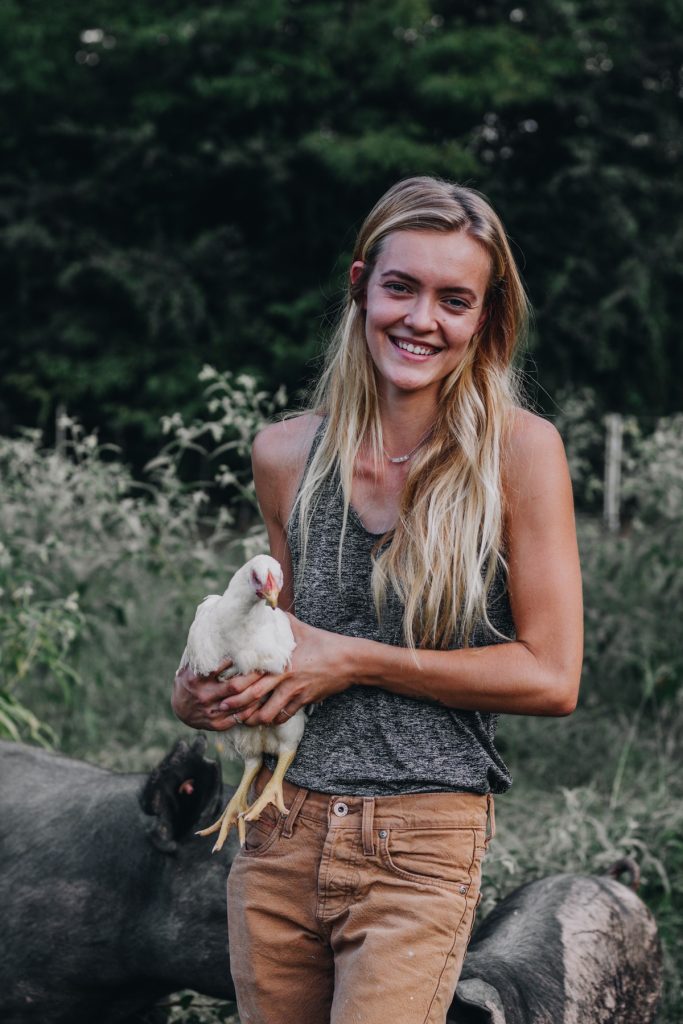
Of course, the easy path is playing it safe and becoming another person in a saturated market. But Annemarie had a gift that was better spent in an area where she could educate and make a difference.
The thing is that it is hard to keep information to yourself about how the industrial markets are, and you want to help be that change. Personally, my blog is a way to do that.
For Annemarie, it is selling her goods to the locals and educating them on why purchasing her meats is important.
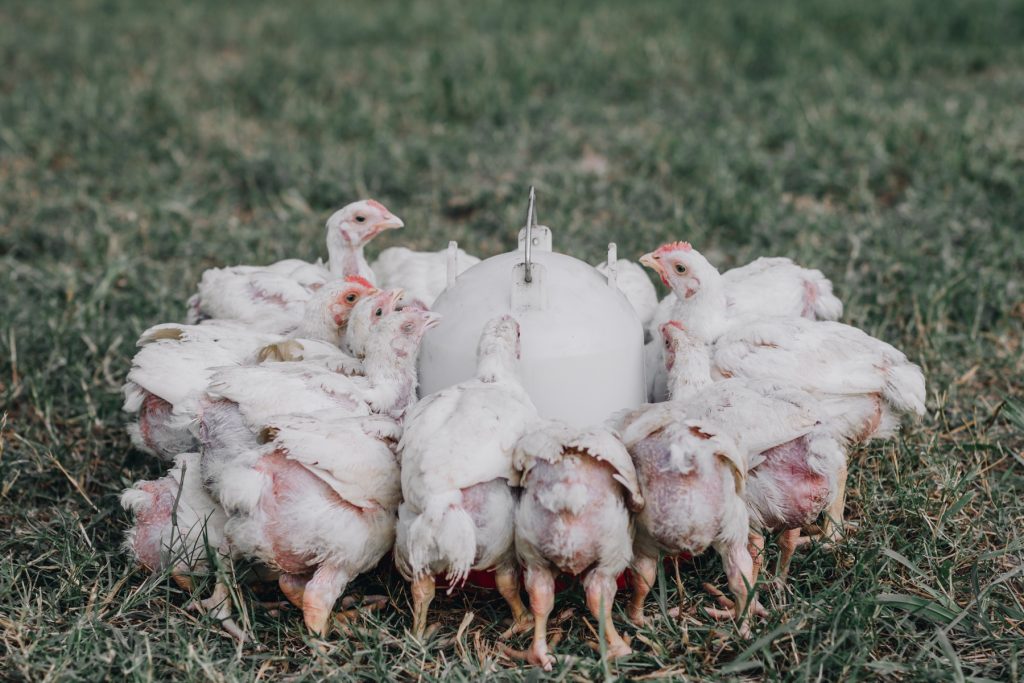
However, Annemarie knew very little about farming. It was more so a trial-and-error situation with each animal she brought onto the property. While it took her a while to figure things out, it soon became a farm that grew into more than just a passion project but a business.
She is fortunate enough to have her passion provide her with the income and lifestyle that the art of slow living is all about.
Her favorite things about farming include:
- The entertainment of the animals. [Because we all know that animals have the most unique personalities!]
- The ever-changing seasons and continually having new things to do.
- Farming is Annemarie’s passion project that just so happens to be her business.
- She is reconnecting with nature and nurturing the relationship between life and death.
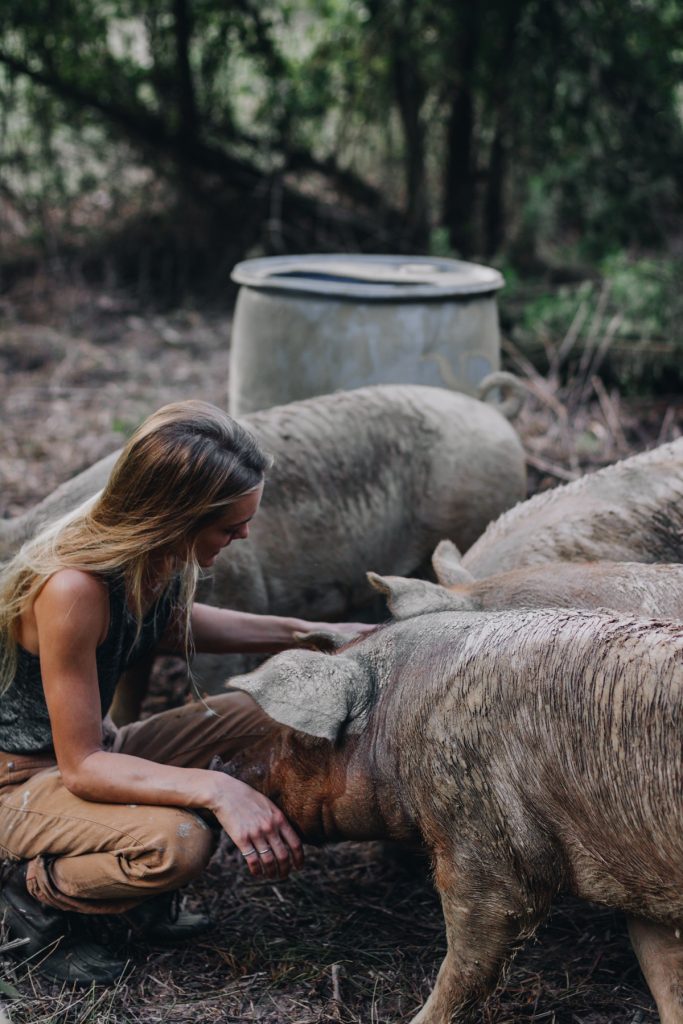
Taking a tour of Annemarie’s farm and hearing her story of all these things left me more emotional than I care to admit.
Being able to discuss growing your own food and all the different elements with someone local to you is priceless, especially because there aren’t many of us in this area.
We discussed the differences in the generations and how most young people are in the dark about what goes into today’s agriculture or how to grow their own food.
It honestly feels like an injustice because most of the focus seems to be on labels. Is it something organic or grass-fed? Is it steroid-free or antibiotic-free? While those things can be important, what is more important is how was that animal raised.
Just because something is considered organic does not mean that it did not live solely on concrete its entire life or was only steroid-free for 30 days before being butchered.
Annemarie took a step back to decide her values before starting her farm, and she deemed that labels weren’t necessary to establish the value of her product.
What is necessary is the life of the animals and the health of the land. Because she knows that giving her farm animals the best life possible is the most important of all.
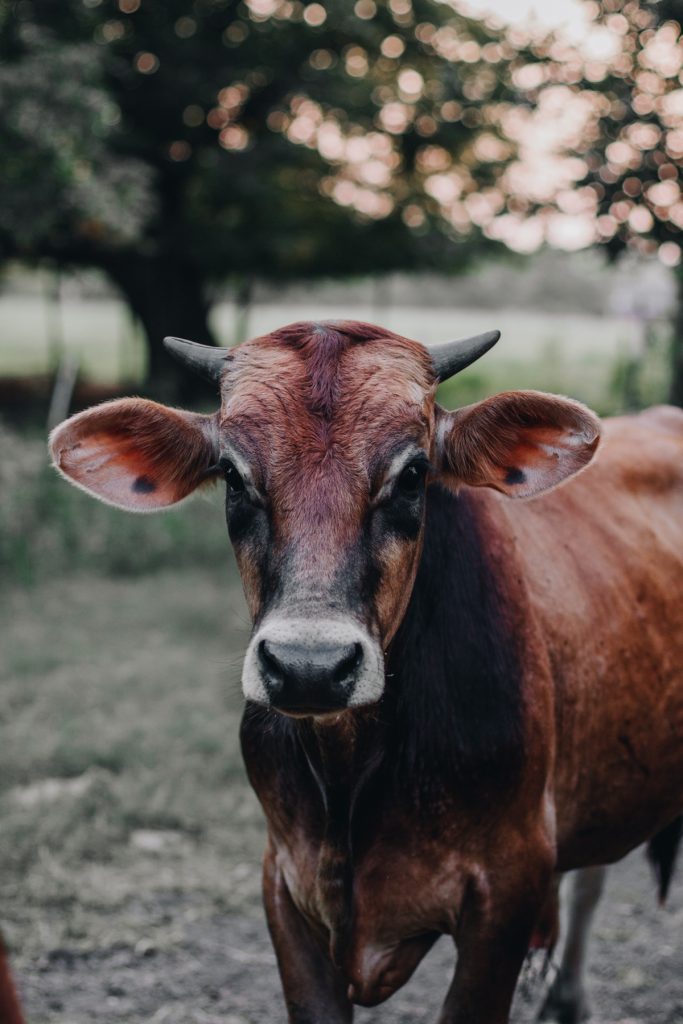
Farming Tips from Annemarie
After spending time with Annemarie, I could tell that she was the real deal. She started her farm small and is continually growing as she can.
Hopefully, her tips will help you if you are considering starting a farm of your own.

Start Small
“Start with one species at a time. See if you like it and if it works for your environment, for your purposes, and for your skill set. If it doesn’t, rather than keep doing it and moving on, stop doing it and move on to a different species. Experiment to see what works best for your operation. Move up and advance slowly.”
Annemarie started with a little bit of everything, and she considers that a mistake. She wasn’t able to get good at anything specific because of the chaos that resulted in having so many different focuses.

Control the Emotional Guilt
“You have to be optimistic about everything you do. You are going to make a ton of mistakes. There are going to be a lot of accidents. I think if you have a really big accident, like a lot of something dying over one night, it’s not anyone’s fault but yours, as the caretaker.
You have to take all of that in stride and know that is part of the game, part of the business. It should encourage you to make sure you learn from those mistakes so you don’t make those mistakes again.
But at the same time, do not take on so much of that as a personal guilt; otherwise, the emotional side, let alone the physical side, is really going to overtake you, and you’re not going to want to do it anymore.”
She makes a really good point with this. It is hard to not feel guilt when something you are a caretaker for dies. I know I have felt that a few times with chickens getting attacked by predators.
“… Use that to your advantage. You do want to be emotionally involved in your farming, otherwise you get things like industrial agriculture, where they don’t really care much about more than the bottom line and making top dollar.
So you do want to care, but at the same time, you do not want to let it overrule everything that you do. You want to learn from your mistakes without totally quitting.”
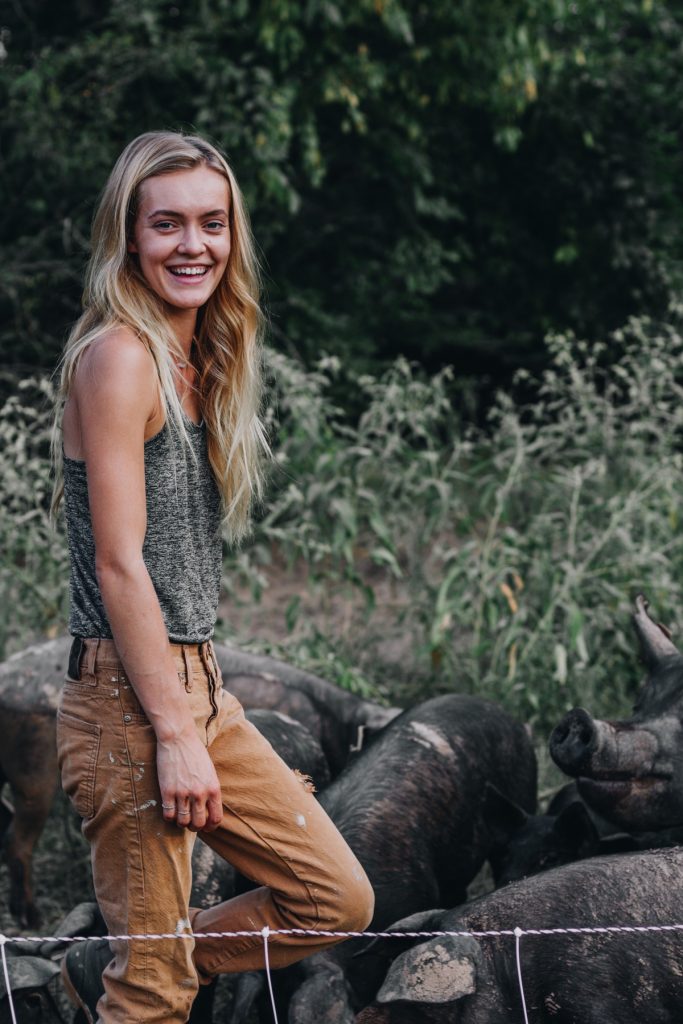
Be Consistent
This is the number one thing that has helped Annemarie get to where she is today.
“I remember coming to a point where in my head, I was thinking there was no other option. As long as I had this thought process, that is what kept me going.”
Having a no-other-option mentality seems necessary when it comes to farming. Personally, I definitely agree with Annemarie. You have to do certain tasks every day, week, or month that keep you moving forward. The feeling of wanting to give up may present itself, but just push through it and remember why you are doing it.
Annemarie also believes that you should not only focus on the day-to-day activities but also plan for the future by a year or so. Seeing what is next helps the mundane feeling of the daily tasks not seem so prevalent.
You have something to work towards, a goal, and that is always exciting.
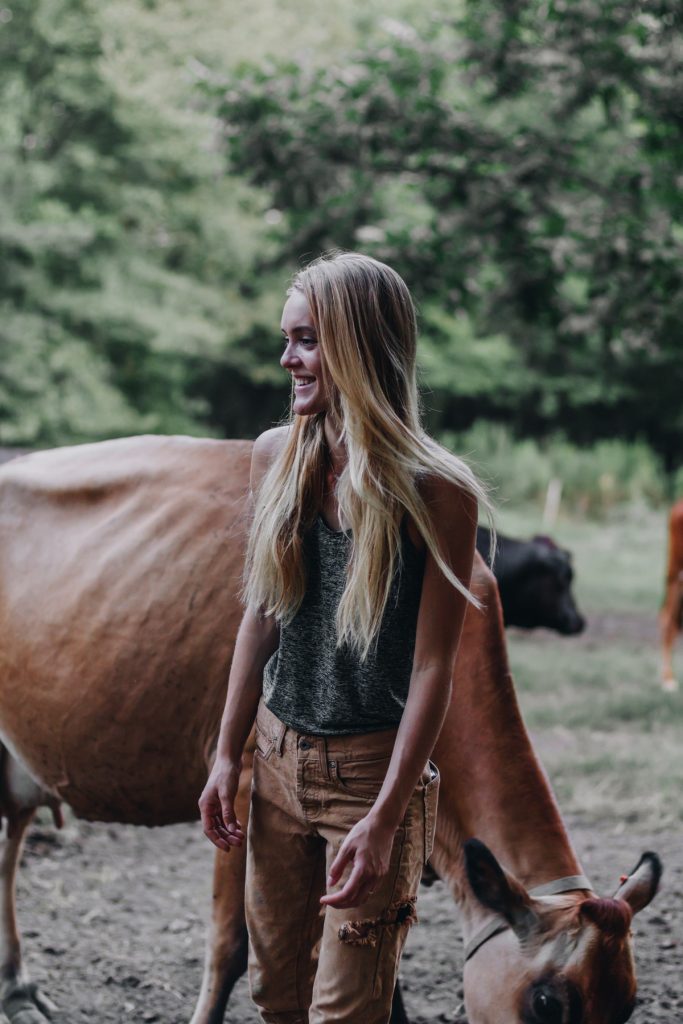
Establish Your Values
“Have your values in place, the whys of what you are doing. Why are you doing it? How do you plan on doing it? What your values are behind it? It’s all super important to place in the beginning because, down the road, as you grow, things are going to get hard. There are going to be a lot of unforeseen.”
As well as establishing value, you should set priorities within your operation. Annemarie uses organic farming as an example.
“If you decide to start out, and you want to be all organic. Stick to all organic, do that, and figure out how to make that work without succumbing to the easy-access feed at Tractor Supply. They also have the why.
Why are you trying to do things organically? Why are you trying to pasture-raised animals? And does that mean enough to you to sacrifice the time and effort it takes to manage your operation that way?”
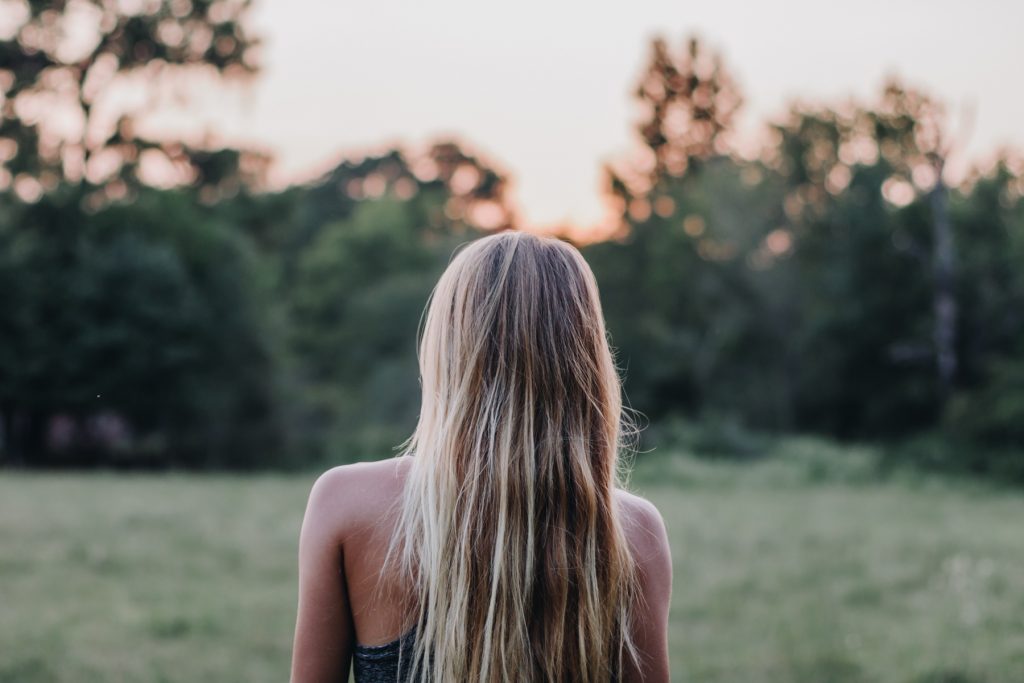
Final thoughts about the art of slow living and farming with Annemarie
If you want to learn more about Annemarie and her farm, be sure to visit her website Sullifarm. You can also find her on Instagram and Facebook.
Be sure to check out my blog post Questions to Ask Before Starting a Homestead and get started planning your homestead today!
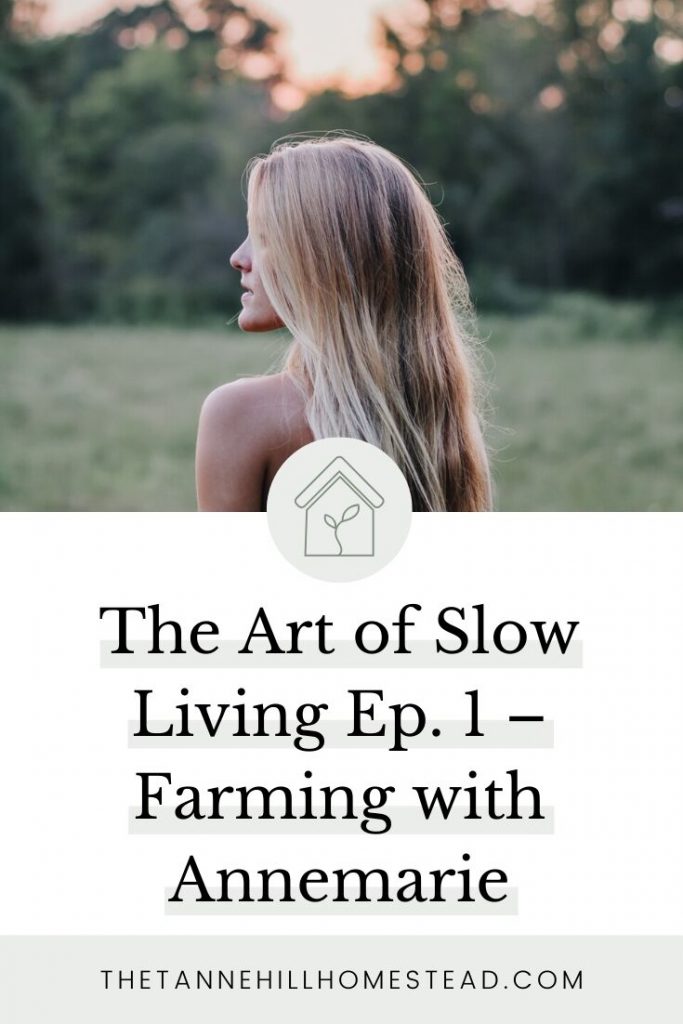
I live this way in the belly of the beast. I need to know that I am not alone.
Wonderful post! There are lessons here that I think anyone can apply to their dreams and goals.
Thank you so much, Kim! I completely agree with you, too.